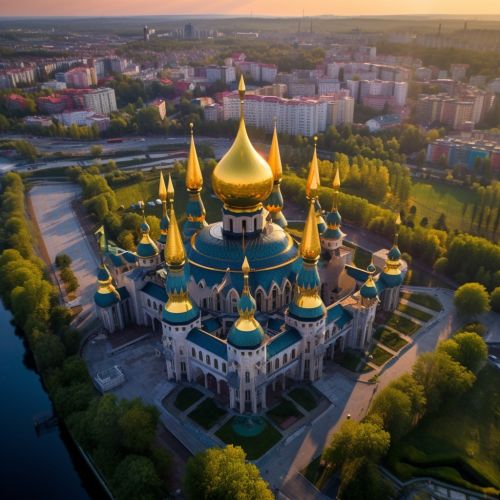Foreign relations of Russia
Historical Overview
The foreign relations of Russia have a long, complex history that dates back to the formation of the Russian state in the 9th century. The country's geopolitical position, its vast size, and its abundant natural resources have all played significant roles in shaping its international relations.


Tsarist Russia
During the era of Tsarist Russia, foreign relations were characterized by a struggle for access to the seas and expansion towards the south and east. The Treaty of Nerchinsk in 1689 with China was one of the first significant treaties in Russian history, marking the beginning of Russia's engagement with East Asia. The 18th and 19th centuries saw Russia's expansion into Central Asia, culminating in the Great Game, a strategic rivalry and conflict for supremacy in Central Asia between the British Empire and the Russian Empire.
Soviet Union
The foreign relations of the Soviet Union were shaped by the ideological conflict of the Cold War. The Warsaw Pact, established in 1955, was a collective defense treaty among eight communist states of Central and Eastern Europe during the Cold War, led by the USSR. The Soviet Union also maintained close relations with other socialist countries and supported liberation movements in the developing world.
Post-Soviet Russia
Following the dissolution of the Soviet Union in 1991, Russia faced numerous challenges in establishing its foreign policy. The country sought to redefine its relationship with the West, particularly with the NATO and the EU, while also managing its relations with the newly independent states of the former Soviet Union.
Current Foreign Policy
Today, Russia's foreign policy is characterized by a balance between cooperation and confrontation with the West, engagement with Asia, and a focus on asserting its influence in the post-Soviet space. The country is a permanent member of the UN Security Council, a member of the G20, the APEC, and the SCO, among others.
Relations with Specific Countries and Regions
United States
The relationship between Russia and the United States has been a central aspect of both countries' foreign policies for over a century. The relationship has gone through periods of alliance, confrontation, détente, and currently, strained relations due to issues such as the Syrian Civil War, the annexation of Crimea, and allegations of election interference.
Europe
Russia's relations with the European Union are complex and multifaceted, encompassing political, economic, and security issues. Energy policy is a significant area of contention, with the EU being heavily dependent on Russian gas supplies.
China
The relationship between Russia and China has evolved from one of hostility during the Cold War to a strategic partnership today. The two countries cooperate in various areas, including energy, trade, and security, and often align in their foreign policy positions.
Post-Soviet States
Russia maintains significant influence over many of the post-Soviet states, particularly in Central Asia and the Caucasus. The country is involved in several unresolved conflicts in the region, such as the Nagorno-Karabakh conflict and the War in Donbass.
Conclusion
The foreign relations of Russia are shaped by a complex interplay of historical legacy, geopolitical considerations, and domestic politics. The country's foreign policy is likely to continue to evolve in response to both internal and external challenges.
